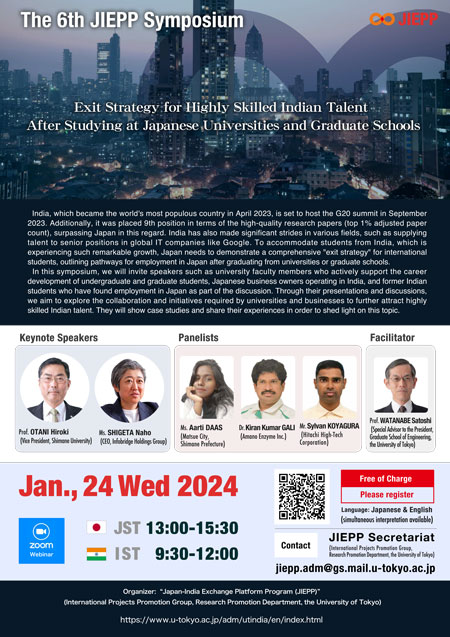

The 6th JIEPP Symposium
“Exit Strategy for Highly Skilled Indian Talent After Studying at Japanese Universities and Graduate Schools”
India, which became the world's most populous country in April 2023, is set to host the G20 summit in September 2023. Additionally, it was placed 9th position in terms of the high-quality research papers (top 1% adjusted paper count), surpassing Japan in this regard. India has also made significant strides in various fields, such as supplying talent to senior positions in global IT companies like Google. To accommodate students from India, which is experiencing such remarkable growth, Japan needs to demonstrate a comprehensive "exit strategy" for international students, outlining pathways for employment in Japan after graduating from universities or graduate schools.
The current situation shows that while India produces over a million graduates in the STEM fields every year, Japanese companies lag behind in acquiring highly skilled Indian talent. This disparity has contributed to a decline in Japan being a priority as a study destination for aspiring Indian students.
In this symposium, we will invite speakers such as university faculty members who actively support the career development of undergraduate and graduate students, Japanese business owners operating in India, and former Indian students who have found employment in Japan as part of the discussion. Through their presentations and discussions, we aim to explore the collaboration and initiatives required by universities and businesses to further attract highly skilled Indian talent. They will show case studies and share their experiences in order to shed light on this topic.
| Dates | Wednesday, 24 January 2024 |
|---|---|
| Time | 13:00 - 15:30 JST / 9:30 - 12:00 IST |
| Venue | Zoom Webinar |
| Program | Keynote speech, presentations, discussion |
| Language | Japanese & English (simultaneous interpretation available) |
| Charge | Free |
| Registration | Ended |
| Organizer | JIEPP (Japan-India Exchange Platform Program) from the University of Tokyo |
| Contact | JIEPP Secretariat, International Projects Promotion Group, Research Promotion Department, the University of Tokyo Mail: |
| Keynote Speakers | Prof. OTANI Hiroki (Vice President, Shimane University) Ms. SHIGETA Naho (CEO, Infobridge Holdings Group) |
| Panelists | Ms. Aarti DAAS (Matsue City, Shimane Prefecture) Dr. Kiran Kumar GALI (Amano Enzyme Inc.) Mr. Sylvan KOYAGURA (Hitachi High-Tech Corporation) |
| Facilitator | Prof. WATANABE Satoshi (Special Advisor to the President, Graduate School of Engineering, the University of Tokyo) |
| Moderator | Ms. YAGIHASHI Mami (Manager, the International Projects Promotion Group, Research Promotion Department, the University of Tokyo) |
Keynote Speaker
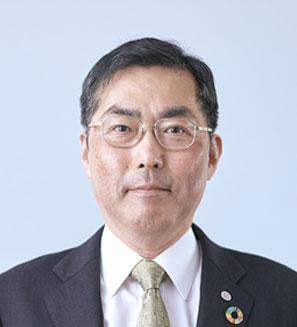
Prof. OTANI Hiroki
Vice President, Shimane University
Born in 1955. After graduating from the Faculty of Medicine, Kyoto University, he joined the Faculty of Medicine, Shimane University (formerly Shimane Medical University) in 1981. Having served as a Councilor of the Education and Research Council, Vice President (in charge of medical education and research), and Dean of the Faculty of Medicine, he took office as a Trustee in April 2021, working on the SDGs, research promotion, industry-academia collaboration, promotion of globalization, and regional collaboration. Since April 2023, he has also been serving as the Director of the International Center, the Head Office for Promotion of Globalization, Shimane University.
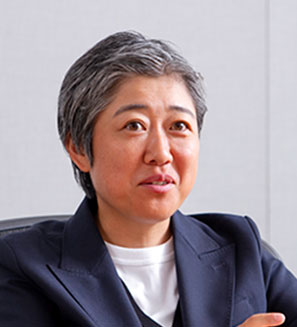
Ms. SHIGETA Naho
CEO, Infobridge Holdings Group
Ms. SHIGETA Naho is a serial entrepreneur in India. From the establishment of INFOBRIDGE HOLDINGS LIMITED in 2006, she has started various businesses in both Japan and India, including marketing research, consulting, startup accelerator in the field of food & agri-tech, premium product distribution business in India, etc. Currently resides in Delhi, India.
Panelist
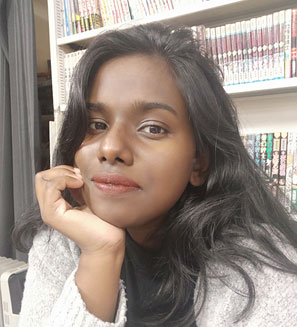
Ms. Aarti DAAS
Matsue City, Shimane Prefecture
In 2013, she joined Center for Japanese Language and Cultural Studies at JNU, New Delhi.
After receiving the scholarship from Heiwa Nakajima Foundation in the following year she studied at Waseda University from 2015 to 2016. In August 2018, she took up the position of Coordinator of International Relations from India at Matsue City, Shimane Prefecture and has been working towards deepening the relations between San’in Region and India.
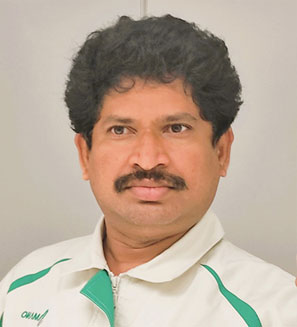
Dr. Kiran Kumar GALI
Amano Enzyme Inc.
Dr. Gali currently working as a senior scientist at Amano Enzymes Inc, which is a global speciality enzyme manufacturer for Food, Pharma, chemical and allied industries. Previously he was associated with Indian Institute of Technology Guwahati (IITG), Gifu University-Japan and Andhra University for his academics and research. Professionally, an experienced bioprocessing faculty with 10+years of higher education industry in Teaching, Training, establishment, and administrative capabilities. A versatile personality having well established Academia, Industry and Research networking capabilities with strong emphasis on Biobased sustainable knowledge groups.
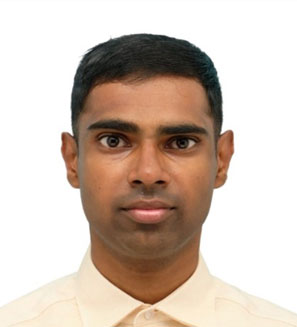
Mr. Sylvan KOYAGURA
Hitachi High-Tech Corporation
Mr. Sylvan KOYAGURA graduated from the University of Tokyo in 2021 with a Master’s Degree in Materials Engineering. Since 2021 he has been working for Hitachi High-Tech Corporation in the Process System Design Department, situated in Yamaguchi Prefecture, Kudamatsu City. Responsibilities include using the company’s semiconductor manufacturing tools based on dry etching in order to process customer requests.
Originally, he is from Mumbai, India and has graduated from Chulalongkorn University with a Bachelor’s degree in Nano-Engineering in 2018.
Facilitator
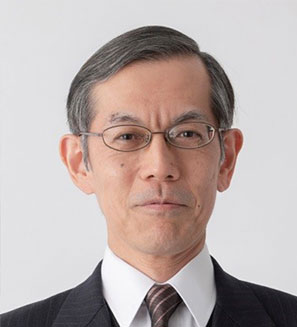
Prof. WATANABE Satoshi
Special Advisor to the President, Graduate School of Engineering, the University of Tokyo
Satoshi Watanabe received his Ph.D. degree in Physics from The University of Tokyo in 1989. He worked on the Aono Atomcraft Project at the Research Development Corporation of Japan (now Japan Science and Technology Agency) from 1989 to 1994 and at the Advanced Research Laboratory, Hitachi Ltd. from 1994 to 1997. Afterwards, he joined The University of Tokyo in 1997 as an associate professor of Department of Materials Engineering and became a professor in 2004. His research fields are computational materials physics, electronic structure calculations, nanoscale transport, nanomaterial properties, and materials informatics. He was the Director of Center for International Affairs, School of Engineering from 2015 to 2018, and now is a special advisor to the president and a Deputy Director of the International Strategy and Planning Office, the University of Tokyo. Among others, he served as the editor-in-chief of e-Journal of Surface Science and Nanotechnology from 2009 to 2018, and has been a member of International Organizing Committee of Asian Workshop on First-Principles Electronic Structure Calculations since 2011.
Flyer
The Sixth Symposium Report
Congratulatory Remarks
Following the opening remarks from Prof. HAYASHI Kaori, Executive Vice President for International Affairs of the University of Tokyo, congratulatory remarks were delivered by His Excellency Mr. Sibi GEORGE, the Ambassador of India to Japan by a video message, and Ms. TAKEDA Kuniko, Deputy Director, Higher Education Bureau, Policy Division, Office for International Planning at the Ministry of Education, Culture, Sports, Science and Technology.
First Keynote Speech
The first keynote speech was given by Ms. SHIGETA Naho, CEO of Infobridge Holdings Group. In her speech, she explained the current situation of the exchanges between India and Japan based on her rich experience of cooperate management in India.
She pointed out that despite the positive image of Japan held by Indian youth, only a small number of students choose Japan as a destination for studying abroad. She analyzed the reasons for this as systems unsuitable for foreign talents, unclear career paths, differences in various customs, language barriers, and the low salary levels in Japan. On the other hand, she introduced positive examples of efforts such as attracting highly skilled Indian talent by Japanese companies and engaging in collaborative research with universities in India. She also pointed out the characteristic in India of community-based group migration through families or social circles and presented the case of Urakawa Town in Hokkaido, which has successfully integrated people from India.
She mentioned her hope for Japan to build a sustainable relationship while emphasizing that countries like South Korea are strengthening their collaboration with India. Additionally, she pointed out that even now, many children in rural areas in India lack access to education, and disparities such as the digital divide are widening in India. She concluded her speech by highlighting the need for Japan to consider how to unearth the talents of young Indians who lack opportunities.
Second Keynote Speech
The second keynote speech focusing on the collaboration between industry, academia, and government in acquiring excellent students from India and facilitating their employment and settlement in the local community, an initiative undertaken by Shimane University was given by Prof. OTANI Hiroki, Vice President of that university.
In his speech, he discussed the establishment of the San'in India Association in 2013 aiming at the economic and cultural exchanges between Japan and India. He highlighted that the San'in region signed a memorandum of understanding with the Kerala state government in India. He talked about the joint efforts of industry, academia, and government in promoting Japan-India exchanges, including exchange programs between universities in Kerala and Shimane University, providing Japanese language learning programs for Indian students, and implementing internships at local companies. He explained that as a result of these initiatives, 12 Indian talents have been employed by companies in the Lake Shinji, Lake Nakaumi, and Mt. Daisen areas, with two of them being former students of Shimane University. He analyzed that students studying at Shimane University had more opportunities to experience Japanese culture and environment compared to short-term internship students, leading to their employment and settlement. He also mentioned the positive outcomes of creating opportunities for interaction between the developer of the programming language Ruby, widely used in Indian companies, and Indian students, which improved the students' motivation to learn Ruby.
He finally highlighted future challenges, which include enhancing the living environment for Indian talents, conducting interviews with companies actively hosting Indian talents, transitioning from short-term internships to programs focused on exchange studies, providing opportunities for Indian students to learn Ruby before coming to Japan, and improving methods to promote these programs.
Presentations from Indian alumni
Following the keynote speech from Prof. OTANI, three Indian alumni who work in Japan gave presentations.
Ms. Aarti DAAS from Matsue City, Shimane Prefecture, shared her experiences of developing an interest in Japan from childhood through exposures to Japanese anime, and majoring in Japanese language and culture during her university years. Drawing from her own experiences of studying and working in Japan, she emphasized that while India and Japan have favorable impressions of each other, ongoing efforts to learn about each other are necessary to maintain exchanges. She advised Indian students aspiring to study in Japan on the importance of learning Japanese and urged the Japanese to have an open mind towards differences in customs, dietary habits, religion, and the need to accept changes when welcoming new people. She highlighted that stereotypes can hinder understanding, emphasized the avoidance of oversimplification in communication, and suggested that schools and companies should educate about diversity. She cited the success of Indian female engineers in small to medium-sized companies in Japan as evidence that mutual understanding and collaboration between India and Japan are indeed achievable.
Mr. Sylvan KOYAGURA from Hitachi High-Tech Corporation shared his decision to choose Japan as a study destination due to its advancements in nanotechnology, allowing him to study high-level nanoengineering in the laboratory. Reflecting on his time studying in Japan, he mentioned that as many Japanese people do not speak English he devoted time to learning Japanese during his study abroad period. Despite his efforts in Japanese language learning, he recounted the challenges he faced with creating entry sheets and interviewing in Japanese during job hunting in Japan, highlighting the importance of the support from the university for international students and the Japanese language classes. Based on these experiences, he advised Indian students aiming to work in Japan to utilize the university’s career support and scholarships, emphasizing the importance of obtaining recommendation letters from professors and seeking support from senior international students. Furthermore, he emphasized the significance of Japanese language learning for Indian students, the scarcity of vegetarian menus in Japan (sometimes necessitating cooking for yourself), and the consideration of employment opportunities in regional cities outside of Tokyo. Finally, he mentioned that Japanese people are very friendly and show interest in Indian culture and cuisine, creating a welcoming environment for Indian individuals.
Dr. Kiran Kumar Gali from Amano Enzyme Inc. shared his experience of getting to know Japan through a symposium between the Indian Institute of Technology Guwahati and Gifu University, which led him to visit Japan through JASSO's Japan-India exchange researcher program. Drawing from his work experience in Japan, he discussed the effectiveness of industry-academia collaboration based on specialized fields in exchange study programs between India and Japan. He also mentioned that the global challenges and flexible work environment at Amano Enzyme Corporation, where he is currently employed, contributed to making his social and professional life in Japan comfortable. In advising students aspiring to work for companies after graduation, he stressed the importance of understanding that universities and corporations have different priorities. He also mentioned that flexibility, trustworthiness, and unconventional thinking are effective qualities for Japanese companies interested in hiring Indian talents.
Overall Discussion Session
Prof. WATANABE Satoshi, Special Advisor to President of the University of Tokyo, moderated the overall discussion session where all the speakers came together, answered questions from the audience and discussed ideas.
Prof. WATANABE emphasized the importance of regional characteristics when Indian talents choose their destination, citing the initiatives in Shimane Prefecture as a positive example. Prof. OTANI stated that the information conveyed during this lecture represents all current initiatives at Shimane University, highlighting the need to expand these efforts and increase exchanges. He expressed his desire for Indian students to settle in Shimane Prefecture and stressed the importance of collaborating with various organizations persistently to enhance the living environment for them.
When asked by the audience what both the receiving side in Japan and the sending side in India needed to keep in mind in order to bridge the differing mentalities between the two countries, Ms. DAAS, speaking from her position working in a public institution in a regional city, emphasized the importance of acquiring subsidies from the government and other sources. She also mentioned that communication is the key to finding solutions. Ms. DAAS noted that even hiring a single Indian talent in a regional city requires essential support, and facing basic issues such as knowing which departments to turn to can be a challenge. She highlighted the complexity of problems that cannot be solved by a single entity and stressed the need to disclose these issues to relevant agencies, work on them collaboratively, and establish connections.
When asked by the audience whether Shimane University has programs for sending students to India for study or internships, or if there are plans for such initiatives, Prof. OTANI responded that currently Indian medical students are being accepted and exchanges ongoing among researchers in the field of oral health sciences. However, he mentioned that there is still insufficient effort in sending Japanese students to India. He also stated the importance of further accepting Indian students to increase student exchanges between Japan and India and to enhance Japanese students' interest in India. Additionally, he expressed his hope to send and host graduate students and researchers as counterparts in India in the future.
When asked by the audience how he relaxes and what events or programs would be convenient for him in Kudamatsu City, where entertainment facilities are relatively limited compared to major cities, Mr. KOYAGURA mentioned that he works late on weekdays and spends his evenings at home after work. However, on weekends, he enjoys playing ball sports with friends both from work and outside. He expressed a desire for food trucks to come to shopping malls so that residents could enjoy a variety of food options. Additionally, he mentioned that although Kudamatsu City is not a big city, he finds it livable because he can travel to other cities in Yamaguchi Prefecture, and he believes that having friends outside of work would make his life even more enjoyable.
When asked by the audience about effective methods for recruiting Indian exchange students, Ms. DAAS mentioned that for companies, promoting their own organization to students can be a good approach. However, she also stressed the importance of addressing negative aspects such as the cost of living, environment, and the daily life for students. Additionally, she highlighted the need for exchange students to understand what support and services they can access. Furthermore, she emphasized that students might expect something exciting to happen and need interesting experiences when joining a company. Moreover, she pointed out that unlike Japanese students, Indian students do not typically work part-time while studying, so when accepting Indian students, it is essential to consider that they may not anticipate the possibility of working part-time.
When asked by Prof. WATANABE about what led her to consider working in Japan, Ms. DAAS responded that she had wanted to go to Japan since childhood. She also mentioned that despite facing various challenges while working in Japan for a long time, she prefers to stay in Japan if possible.
When asked by Prof. WATANABE about how universities can support the acquisition of more international students in Japan, and whether English-only programs without a Japanese language requirement would be appealing to Indian students, Mr. KOYAGURA suggested that focusing on the differences in university majors between Japan and India could pique the interest of Indian students. He also recommended highlighting the strengths of Japan in fields that interest Indian students. Dr. GALI pointed out that at Japanese universities, automated voice guidance systems often default to Japanese, which may lead to a loss of interest among Indian students.
Prof. WATANABE emphasized the importance of forming a community for international students and acknowledged that community formation can be challenging when the number of international students is very low. He asked Ms. DAAS about the prospects of creating a cross-university international student community. Ms. DAAS mentioned a case of an Indian community spanning universities in a regional city. She highlighted that not only for university students but also for the broader Indian community, these networks serve as vital spaces for Indian exchange students. She expressed that restricting community participation only to Indian university students could make formation challenging, but by including local Indian residents, they could establish a local community. Additionally, she stated that it should be possible to create an Indian community that transcends universities and regions.
When asked by Prof. WATANABE for advice or suggestions for university officials, Ms. SHIGETA highlighted that Indian students are sociable, and that community building is important. She emphasized the significance of the environment surrounding these students. Additionally, she mentioned the importance of collaboration between the university and local companies, IT firms, and other universities. She stated that if universities aim to attract more Indian students, it is crucial for them to maintain continuous collaboration with these entities. Furthermore, she mentioned that this collaboration strategy applies to private companies as well. Ms. Shigeta expressed concerns that universities may fear losing students to companies offering better conditions. Therefore, she suggested that universities should focus on increasing the number of fans of Japan who wish to study here and emphasize how to attract a larger student population.
Closing Remark & Summary
In closing, Prof. WATANABE mentioned that the exit strategy for Indian exchange students, which is the theme of the symposium, is a challenge. He emphasized that employment should not be the sole end goal but that post-graduation careers are crucial as well. He highlighted the importance of creating a conducive environment through collaboration between academia, industry, and government. Furthermore, he stated that it is essential not only for students but also for the general Japanese populace to have a deeper understanding of India. He mentioned that it is necessary for more Japanese individuals to travel to India in the future.
